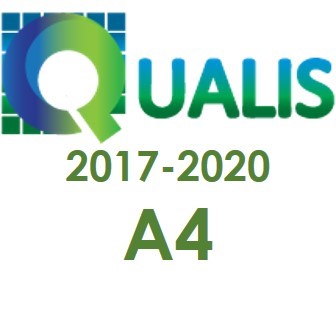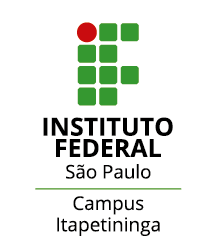Saber experiencial e conhecimento profissional docente
implicações epistemológicas e formativas
Palavras-chave:
Saber experiencial, conhecimento profissional docente, epistemologia da prática, formação inicial de professores.Resumo
Aborda-se o papel do saber experiencial na construção do conhecimento profissional docente e reflete-se sobre as suas implicações em termos epistemológicas e de formação de professores. Argumenta-se quanto à necessidade de implementar uma prática de formação inicial de professores que capacite os futuros profissionais, quer para um desempenho profissional autónomo e ativo, quer para a sua consciencialização de apenas ter iniciado um processo de aprendizagem e construção da profissionalidade que continuará e se renovará ao longo do seu percurso profissional
Downloads
Referências
ANDERSON, G.; HERR, K. (1999). The new paradigm wars: is there room for rigorous practitioner knowledge in schools and universities? Educational Researcher, 28 (1-2), 1999, p. 12-21.
BALL, D. L.; COHEN, D.K. Developing practice, developing practitioners. Toward a practice-based theory of professional education. In Darling-Hammond, L. & Sykes, G. (eds.) (1999). Teaching as the learning profession. Handbook of policy and practice. San Francisco: Jossey-Bass, 1999.
BOAVIDA, J.; AMADO, J. Epistemologia, identidade e perspectivas. Coimbra: Imprensa da Universidade de Coimbra, 2006.
BORGES, M. L. “Os professores, atores na construção da sua profissionalidade: o papel dos saberes experienciais. Atas do XX Colóquio da AFIRSE Formação Profissional: investigação educacional, teorias, políticas e práticas. De 31/1 a 2/2 de fevereiro de 2013: 1105-1117
BORGES, M. L. Profissionalidade docente: da prática à praxis. Investigar em Educação - II ª Série, Número 2, 2014, p. 39-53.
CAETANO, A. P. A complexidade dos processos de formação e a mudança dos professores. Porto: Porto Editora, 2004.
CALDERHEAD, The nature and growth of knowledge in student teaching. Teaching and Teacher Education. Vol. 7, nº 5/6, 1991, p. 531 – 535.
CALDERHEAD, J. The contribution of research on teachers’thinking to te Professional development of teachers. In DAY, C.; CALDERHEAD, J.; DENICOLO, P. (org.) Research on teacher thinking: understanding professional development. Bristol: Falmer Press, 1991, p.11 -18.
CLEMENTE, M. & RAMÍREZ. How teachers express their knowledge through narrative. Teaching & teacher education. Nº 24, 2008, p. 1244-1258.
COCHRAN-SMITH, M. & LYTLE, S. Relationship of Knowledge and practice: teacher learning in communities. Review of Research in Education. Nº 24, 1999, p. 249 – 305.
CONNELLY, M.; CLANDININ, D. & HE, M. F. Teachers’s personal practical knowledge on the professional knowledge landscape. Teaching and teacher education. Vol.13, Nº 7, 1997, p. 665-674.
DAY, C. Desenvolvimento profissional de professores. Os desafios da aprendizagem permanente. Porto: Porto Editora, 2001.
EISNER, E. Is the “art of teaching” a metaphor? In KOMPF, M.; BOND, W.R.; DWORET, D. & BOAK, R. Changing research and practice. Teachers’ professionalism identities and knowledge. London: Falmer Press, 1996.
ELLIOT, J. Professional education and the ideia of a pratical educational science. In Elliot, J. (Ed.). Reconstructing Teacher Education. London: Falmer Press, 1993.
ERAUT, M. Developing professional knowledge and competence. London: Falmer Press, 1994.
ESTEVES, M. Construção de desenvolvimento das competências profissionais dos professores. Sísifo. Revista de Ciências da Educação. Nº 8, 2009, p. 37-48. Consultado em 10/4/2010 em http://sisifo.fpce.ul.pt
FORMOSINHO, J.; OLIVEIRA-FORMOSINHO, J.; MACHADO, J Docência, interacção pessoal e desenvolvimento humano. In FORMOSINHO, J.; OLIVEIRA-FORMOSINHO, J.; MACHADO, J. Formação, desempenho e avaliação de professores. Mangualde: Edições pedagogo, 2010.
GAUTHIER, C. et al. Por uma teoria da pedagogia. Pesquisas contemporâneas sobre o saber docente. Ijuis – RS: Ed. INIJUI, 1998.
GOODSON, I. Conhecimento e vida profissional. Porto: Porto Editora, 2008.
GRAVANI, M. Academics and practitioners: partners in generating knowledge or citizens of two different worlds? Teaching and Teacher Education. Nº 24, 2008, p. 649 – 659.
HADJI, C Da cientificidade dos discursos sobre educação. In Estrela, A.; Ferreira, J. (Orgs.) Investigação em educação: métodos e técnicas. Lisboa: EDUCA, 2001.
HARGREAVES, A.Os professores em tempos de mudança. O trabalho e a cultura dos professores na idade pós-moderna. Lisboa: McGraw Hill, 1998.
KORTHAGEN, F.A.J. In search of the essence of a good teacher: towards a more holistic approach in teacher education. Teaching and Teacher Education. Nº 20, 2004, p. 77-90.
KORTHAGEN, F. Situated learning theory and the pedagogy of teacher education: towards an integrative view of teacher behavior and teacher learning. Teaching and teacher education. 26, 2010, p. 98-106.
KORTHAGEN, F.; LOUGHRAN, J.; RUSSELL, T. Developing fundamental principles for teacher education programs and practices. Teaching and teacher education. 22, 2006, p. 1020-1041.
LAURSEN, P.F. Student teachers’ conceptions of theory and practice in teacher education. (paper presented at ISATT Conference, Brock Unkiversity, July), 2007 http://www.isatt.org/ISATT-papers/ISATTpapers/Laursen_StudentTeachersConceptionsofTheoryandpractice.pdf
LEFEBVRE, B. La Recherche qualitative et l’analyse de contenu en sciences de l’éducation. In ESTRELA, A.; NÓVOA, A.; RODRIGUES, A.; FALCÃO, E. e PINTO, P. R. (Orgs.)La Methodologie de Recherche en Education. Actes do Colloque Internacional da AIPELF. Lisbonne: Faculdade de Psicologia e Ciências da Educação, da Universidade de Lisboa, 1998.
LESSARD, C. O trabalho docente, a análise da actividade e o papel dos sujeitos. Sísifo. Revista de Ciências da Educação. Nº 8, 2009, p. 37-48. Consultado em 10/4/2010 em http://sisifo.fpce.ul.pt
MIALARET, G. Savoirs théoriques, saviors scientifiques et saviors d’action en education. In Barbier, J. M. (Org.). Savoirs théoriques et savoirs d’action. Paris: PUF, 1996.
MOLES, A. As ciências do impreciso. Porto: Afrontamento, 1995.
NÓVOA, A. Os professores e o “novo” espaço público da educação. In Tardif, C.;Lessard, C. O Ofício de Professor. História, perspectivas e desafios internacionais. Petrópolis: Editora Vozes, 2008, p. 217-233.
OLIVEIRA-FORMOSINHO, J. Desenvolvimento profissional dos professores. in Formosinho, J. ( Coord.) Formação de professores. Aprendizagem professional e acção docente. Porto: Porto Editora, 2009.
PERRENOUD, P. Práticas pedagógicas, profissão docente e formação. Perspectivas sociológicas. Lisboa: Dom Quixote, 1993.
PERRENOUD, P. A prática reflexiva no ofício de professor. Profissionalização e razão pedagógica. Porto Alegre: Artmed, 2002.
PERRENOUD, P. & THURLER, M. As competências para ensinar no século XXI. A formação dos professores e o desafio da avaliação. Porto Alegre: Artemed, 2008.
PUTNAM, R. T., & BORKO, H. What do new views of knowledge and thinking have to to say about research on teacher learning?. Educational Researcher. Vol.29, 2000, p. 4 -15. Webpage citation: http://www.aera.net/pubs/er/arts/29-01/putnam02.htm
RAYMOND, D.; LEONOIR, Y. Enseignants de métier et formation initiales. Une problématique divergente et complexe. In RAYMOND, D.; LENOIR, Y. (Éds.) Enseignants de métier et formation initiale. Les changements dans les rapports de formation à l’enseignement. Paris: DeBoeck, 1998.
RIGANO, D. & RITCHIE, S. Learning the craft: a student teacher’s story. Asia-Pacific Journal of Teacher education. Vol. 27, nº 2, 2007, p. 127 – 140.
ROLDÃO, M.C. Função docente: natureza e construção do conhecimento profissional. Saber (e) Educar. Universidade do Minho, Nº 13, 2008.
RUTHVEN, K. & GOODCHILD, S. Linking researching with teaching. Towards synergy of scholarly and craft knowledge. In ENGLISH, L.D. (ed.) Handbook of International Research in Mathematics Education. New York: Routledge. 2008.
SÁ-CHAVES, I. Formação, conhecimento e supervisão. Aveiro: Universidade de Aveiro, 2000.
SCHÖN, D. The reflective practitioner: how professionals think in action. New York: Basic Books, 1991.
SCHÖN, D. Educando o profissional reflexivo: um novo design para o ensino e a aprendizagem. Porto Alegre: Artes Médicas, 2000.
SHULMAN, L. Those who under stand: knowledge growth in teaching. 1986). In SHULMAN, L. The wisdom of practice. Essays on teaching, learning and learning to teach. San Francisco: Jossey-Bass, 2004, p. 189-215.
SHULMAN, L.; SHULMAN, J. How and what teachers learn: a shifting perspective. Journal Curriculum Studies. Vol. 36, nº 2, 2004, p. 257 – 271.
STOLL, L.; BOLAM, R.; MCMAHON, A.; WALLACE, M. & THOMAS, S. Professional learning communities: a review of the literature. Journal of Educational Change. 7, 2006, p. 221-258.
TARDIF, M. Saberes profissionais dos professores e conhecimentos universitários. Elementos para uma epistemologia da prática profissional dos professores e suas consequências em relação a formação para o magistério. Revista Brasileira de Educação. Nº 13, 2000, p. 5-24.
TARDIF, M. Saberes docentes e formação profissional. Petrópolis: Editora Vozes, 2002.
TARDIF, M.; LESSARD, C. & GAUTHIER, C. Formação dos Professores e contextos sociais. Porto: Rés, 1998.
VAN DER MAREN, J.M., Méthodes de recherché pour l´éducation. Bruxelles: De Boeck, 1995.
VILLEGAS-REIMERS, E.Teacher professional development: an international review of the literature. Paris: International Institute for Educational Planning, UNESCO, 2003 (www.unesco.org/iiep)
Downloads
Publicado
Como Citar
Edição
Seção
Licença
Copyright (c) 2016 Revista Internacional de Formação de Professores

Este trabalho está licenciado sob uma licença Creative Commons Attribution-NonCommercial-ShareAlike 4.0 International License.



 Este trabalho está licenciado sob uma licença
Este trabalho está licenciado sob uma licença 